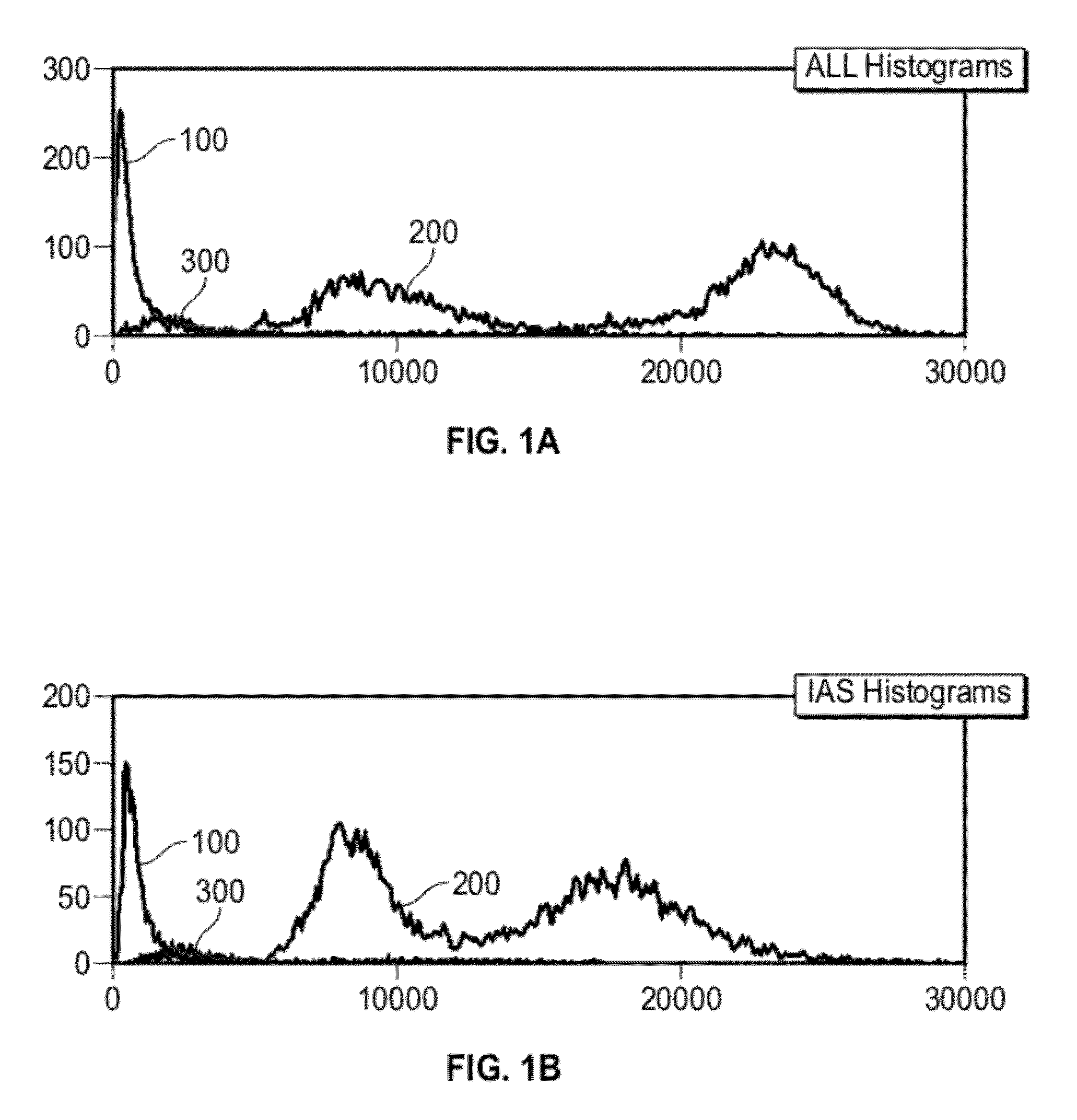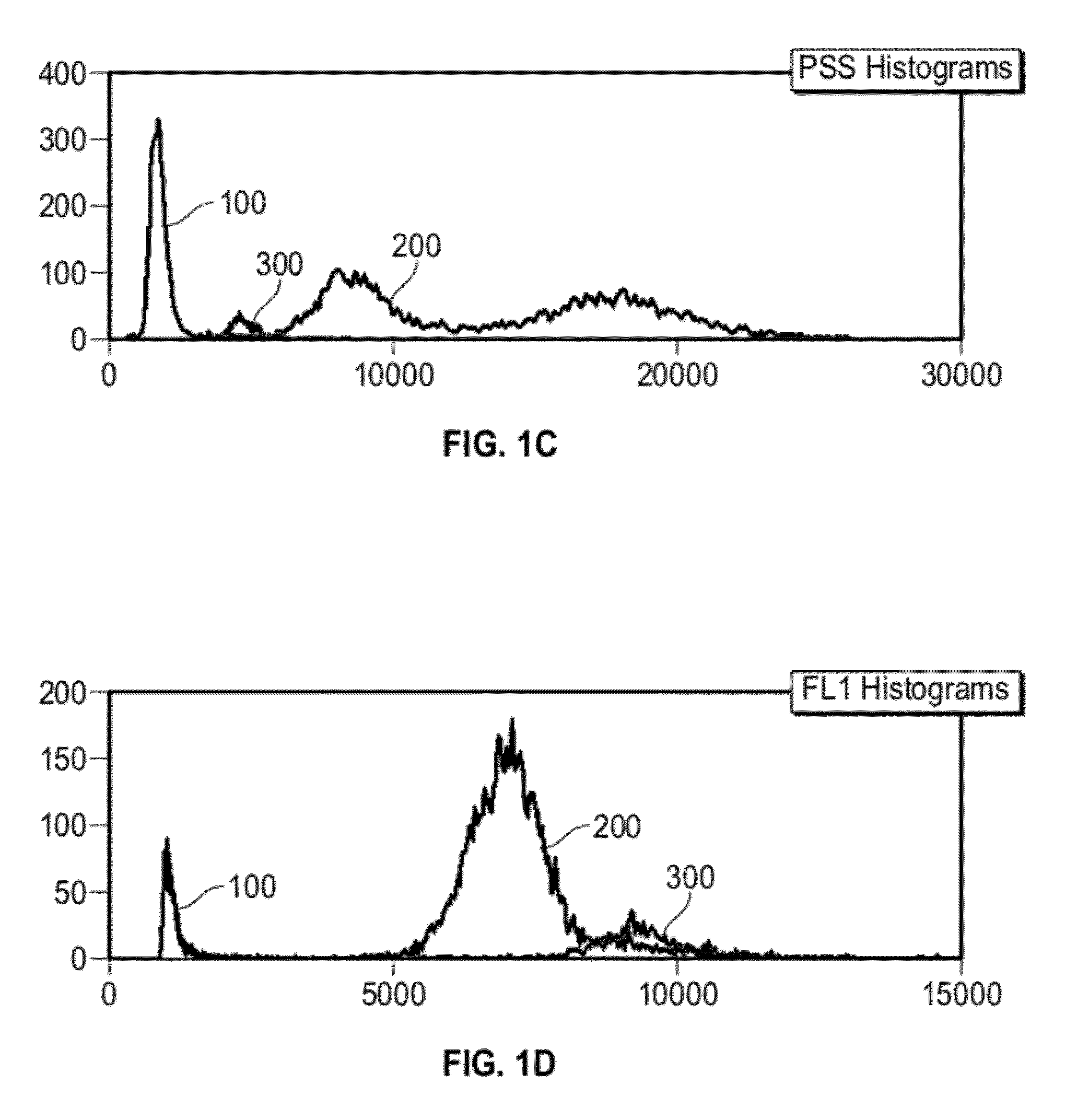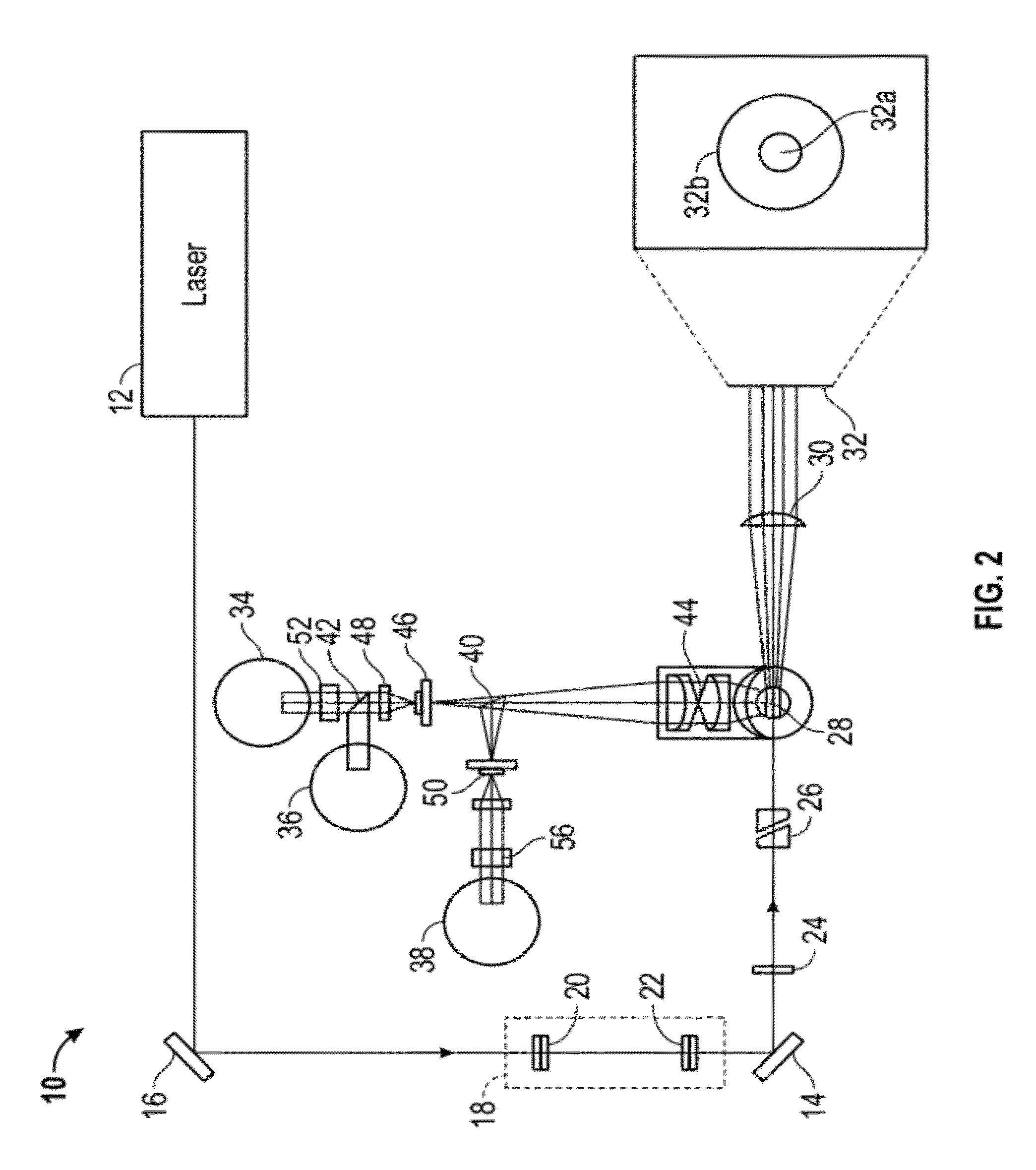Nucleated red blood cell analysis system and method
a technology of nucleated red blood cells and analysis systems, applied in the field of hematology systems and methods, can solve the problems of unable to completely eliminate the fragments of lysed red blood cells (rbcs) in rapid hematology measurements, each of the above-listed techniques has shown clinical practice weaknesses, and the abnormality of nrbcs in adults
- Summary
- Abstract
- Description
- Claims
- Application Information
AI Technical Summary
Benefits of technology
Problems solved by technology
Method used
Image
Examples
Embodiment Construction
[0033]Provided herein are systems and methods for analyzing blood samples, and more specifically for performing an nRBC analysis to identify, classify, and count nRBCs in a blood sample. In general, the systems and methods disclosed screen nuclei-containing events vs. non-nuclei-containing events by means of fluorescence staining and a fluorescence triggering strategy. As such, interference from unlysed red blood cells (RBCs), such as lysis-resistant red blood cells (rstRBCs), and RBC fragments is substantially eliminated prior to subsequent analysis. In other words, the systems and methods described herein utilize at least one fluorescent dye and a fluorescence triggering system to screen events containing nuclei, to thereby accurately and reliably identify and quantify WBCs and nRBCs. A combination light scattering information and fluorescence information is then used to further separate nRBCs from WBCs. The systems and methods disclosed thereby ensure accurate counting and differ...
PUM
| Property | Measurement | Unit |
|---|---|---|
| wavelength | aaaaa | aaaaa |
| wavelength | aaaaa | aaaaa |
| intermediate angle scatter | aaaaa | aaaaa |
Abstract
Description
Claims
Application Information
 Login to View More
Login to View More - R&D
- Intellectual Property
- Life Sciences
- Materials
- Tech Scout
- Unparalleled Data Quality
- Higher Quality Content
- 60% Fewer Hallucinations
Browse by: Latest US Patents, China's latest patents, Technical Efficacy Thesaurus, Application Domain, Technology Topic, Popular Technical Reports.
© 2025 PatSnap. All rights reserved.Legal|Privacy policy|Modern Slavery Act Transparency Statement|Sitemap|About US| Contact US: help@patsnap.com



